"Pull my finger."
moakley
terrorism
the unlawful use of violence and intimidation, especially against civilians, in the pursuit of political aims.
Physical force in this case means violence. Unless you expect them to only use their powers to do things like save kittens from trees, but I don't think that addresses the original point.
So how is that inaccurate?
Relentless? He ends up in jail.
The actual current President of the United States is unjustly imprisoning thousands of innocent people right now, and he will never see a moment of jail time.
Brave New World is unrealistically optimistic on the subject of Presidents paying for their crimes.
How would Sam Wilson change international law? That's what they'd need to do to address the root cause that created the Flag Smashers. For that particular challenge, he's not much more powerful than Andy Dufresne. The one thing he does have is a platform, which he uses, which is something you said never happens.
And it just doesn’t seem like you know or understand what a sympathetic villain is… it doesn’t mean they are “right” or not actually a villain…
And you seem to be missing the part where I'm differentiating between the villain being sympathetic and their cause being sympathetic. The former (which you brought up) isn't relevant to your original point, where the underlying issue needs to be addressed. It doesn't matter how sympathetic Thanos is. The underlying issue is that he's a mass-murdering madman, so how is it a valid complaint to say that the heroes never address the underlying issues?
Suppose you took Thanos at face value and say the underlying cause is the concept of limited resources. What would that story look like, anyway? The Avengers alter reality to address the very concept of limited resources, creating a utopia across the entire universe? That sounds a little inaccessible.
I think what you're missing about the super hero genre is that their powers are generally limited in scope. They can't just reshape the world (except in that one What If..? episode called "What If Kahouri Reshaped the World?"). They struggle just like everyone else, and then sometimes through great effort they can save the day. That's what makes the stories good.
Anyway, I realized as I was writing the Simba thing that it actually was a good point, so I prepared an answer.
The actual reason is that in the Lion King universe, "the Circle of Life" isn't a complex series of interconnected, self-regulating systems like it is in real life. In-universe, it's the dogma of an environmentalist death cult that holds together a fragile ecosystem. Any animal that doesn't adhere to the death cult's strictures is exiled from their society, like the hyenas.
And like, the environmentalism is fine, but forcing the zebras, antelopes, and wildebeests to actively participate in a system where their role is to be eaten makes it a death cult.
The system is explored in the sequel series Lion Guard, where Simba's son goes around the Pride Lands using his super powerful Roar to maintain the status quo. Like if an alligator tries to eat too many of the wrong animal, the Lion Guard shows up and exiles them. Conversely, when a hyena agrees to adhere to the Circle of Life, she's welcome in the Pride Lands. So it's really a religious/cultural disagreement. Hyenas can't be allowed in unless they're willing to assimilate.
There's a disturbing conservative metaphor there, although the rest of it smells like a planned economy. Very authoritarian either way, but then again it's not called Lion President.
Um… they are literally more often than not complex villains designed to be sympathetic to the audience, doing things “the wrong way” for reasons that the audience can relate to.
I agree they do a good job of making the villains sympathetic, but their goals aren't. We can appreciate the complexity of Loki's relationships with Thor and Odin, but that doesn't qualify for your criticism of wanting the heroes to "address the underlying issue".
Same goes for Thanos. His righteousness is what motivates him, but that doesn't make him any less insane. There's no reasoning with the Mad Titan (except in that one What If..? episode).
it isn’t until End Game when he sacrifices himself that he completes the arc and acts with selfless motivation.
He literally does the same thing at the end of Avengers. And in the meantime he redirects all the wealth of his giant corporation away from making weapons and towards things that benefit the world, like clean energy.
And then… like… after his big speech… did he do it?
Did he.. personally supercede the governments of the world and force them to change their policy on refugees? Dude. He is a man in a wingsuit. He doesn't have that ability.
That's why this whole argument is bunk. The complaint boils down to: "Why didn't these characters drop everything they're doing and start a violent revolution instead of dealing with the problems that are right in front of them?"
That complaint has no merit, because it can be applied to almost every film ever. Why didn't Andy Dufresne start a riot and force prison reform? Why didn't Simba implement a social welfare program for the hyenas who helped murder his father? Why are all these high school students going to high school instead of starting a revolution?
These are silly questions when you apply them to other movies. They're even sillier when you apply them to MCU movies, which overall do a pretty decent job of addressing societal ills alongside the escapism.
And that's not even mentioning the new season of Daredevil, which could not under any circumstances be described as "pro-cop".
So you judge the movies without seeing them and you respond to my comment without reading it?
They never use their super special awesome powers to bring about meaningful or real change that would benefit their societies
This is what my comment was about. You can't make social change with super powers. Super powers are a tool of physical force. I'm sure someone could write a great story about a super hero leading a violent and justified revolution, but you can't possibly expect that to be a hallmark of the genre.
and never address the underlying issues that drive the “bad guys” to do “bad guy stuff”.
That's categorically false.
First of all, most of the villains don't have sympathetic goals. You want them to address the underlying issue with Red Skull trying to spread fascism? Do you have a problem with them maintaining the status quo against Loki trying to conquer the Earth?
Second of all, they do address it when applicable.
-
Both Black Panther movies are about reconciling the antagonist's viewpoints.
-
In Age of Ultron, Scarlet Witch and Quicksilver believe that the Avengers are a tool of western imperialism. When the Avengers are willing to sacrifice themselves to save Sokovia, Scarlet Witch joins the team.
-
Helmut Zemo has a similar perspective. They never reconcile that, but he succeeds in destroying the Avengers. The moral ambiguity is part of the point.
They are constantly addressing the things you're bringing up. Like I honestly don't think you paid attention to any of these movies, because you seem to have missed some very obvious themes running through the entire MCU.
Tony Stark's whole character arc in the first movie is about reforming his life to make the world a better place. He stops the homicidal villain with his Iron Man armor, and then he effects actual change as a civilian, because that's how actual change works.
Did you miss Falcon and the Winter Soldier, where Captain America gives a big speech saying exactly what you are saying, that they need to do more to address the problems that created the villains? Or the entire arc of that character, where he realizes he's worthy of taking up the mantle not because of any super special awesome powers, but because of his desire to use the platform to improve society?
The super hero genre is an individualist power fantasy. It's about giving power to individuals, whereas in real life power rests in groups and systems. That includes the power to effect social change.
It's an escapist response to living in an impossibly complicated world where we want to do good, but we feel powerless and unable to.
The story of a character organizing a series of protests wouldn't really benefit from that character having super powers. Using super powers (physical force) to push political beliefs is terrorism.
So the constraints of the genre mean that social messages have to exist alongside the A-plot power struggle. And they frequently do.
Black Panther is about abandoning isolationism and using a government's power and wealth to help people.
The Avengers have an unmissable theme of not supporting the military-industrial complex. Same with Iron Man.
Common Marvel villains include fascists, bigots, businessmen, and corrupt law enforcement, in addition to the madmen and evil gods.
I've seen this point made a few times, and it just reeks of someone backfilling a reason to hate something popular without actually spending a moment to, you know, watch that thing.
To be fair, I don't actually know how to rotate a pdf. I re-learn it every few years, then immediately forget it again.
Even with this information, it's fine if it's a small part of your diet. My kids aren't going to die because they eat a peanut butter and jelly sandwich every day.
Always having it available and the fact that they'll eat it mean it's the healthier choice.
You have to make tradeoffs. That's just how food works and how it has always worked.
Kellogg was never actually that influential. People mostly knew he was a crackpot at the time.
An episode of Adam Ruins Everything gave him way too much credit, and then people on the internet just keep repeating it because Kellogg was such a weird guy.



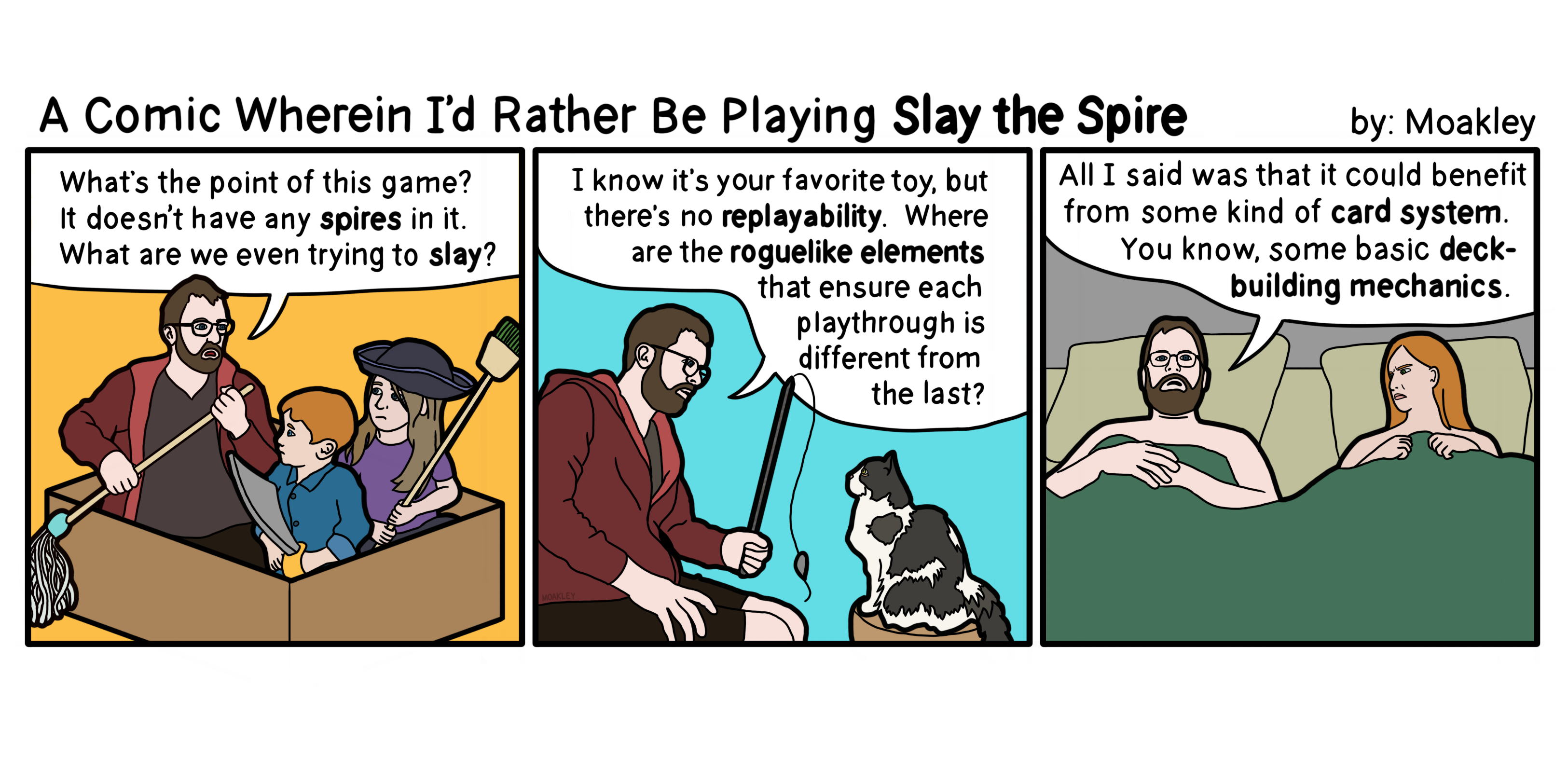
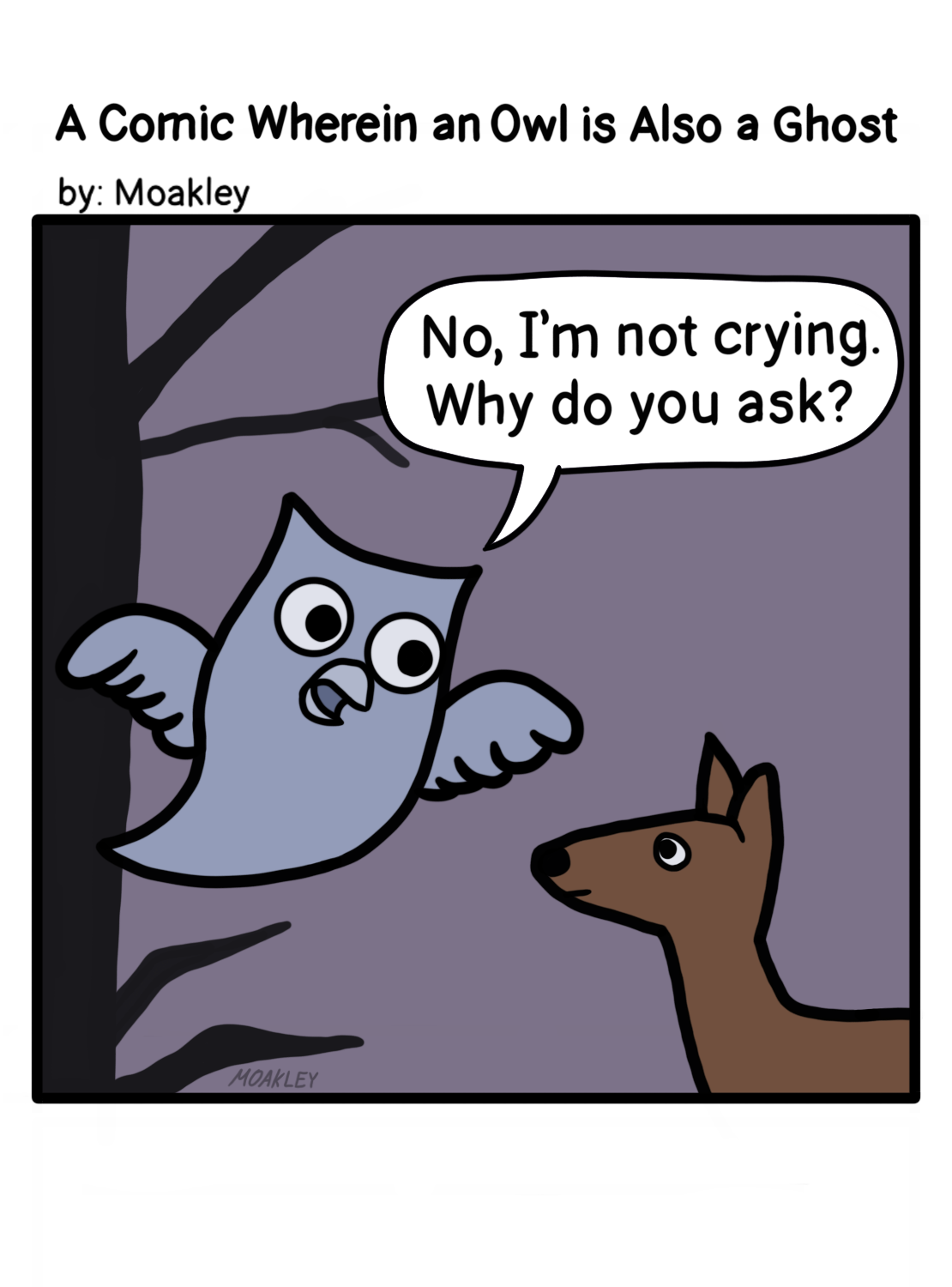
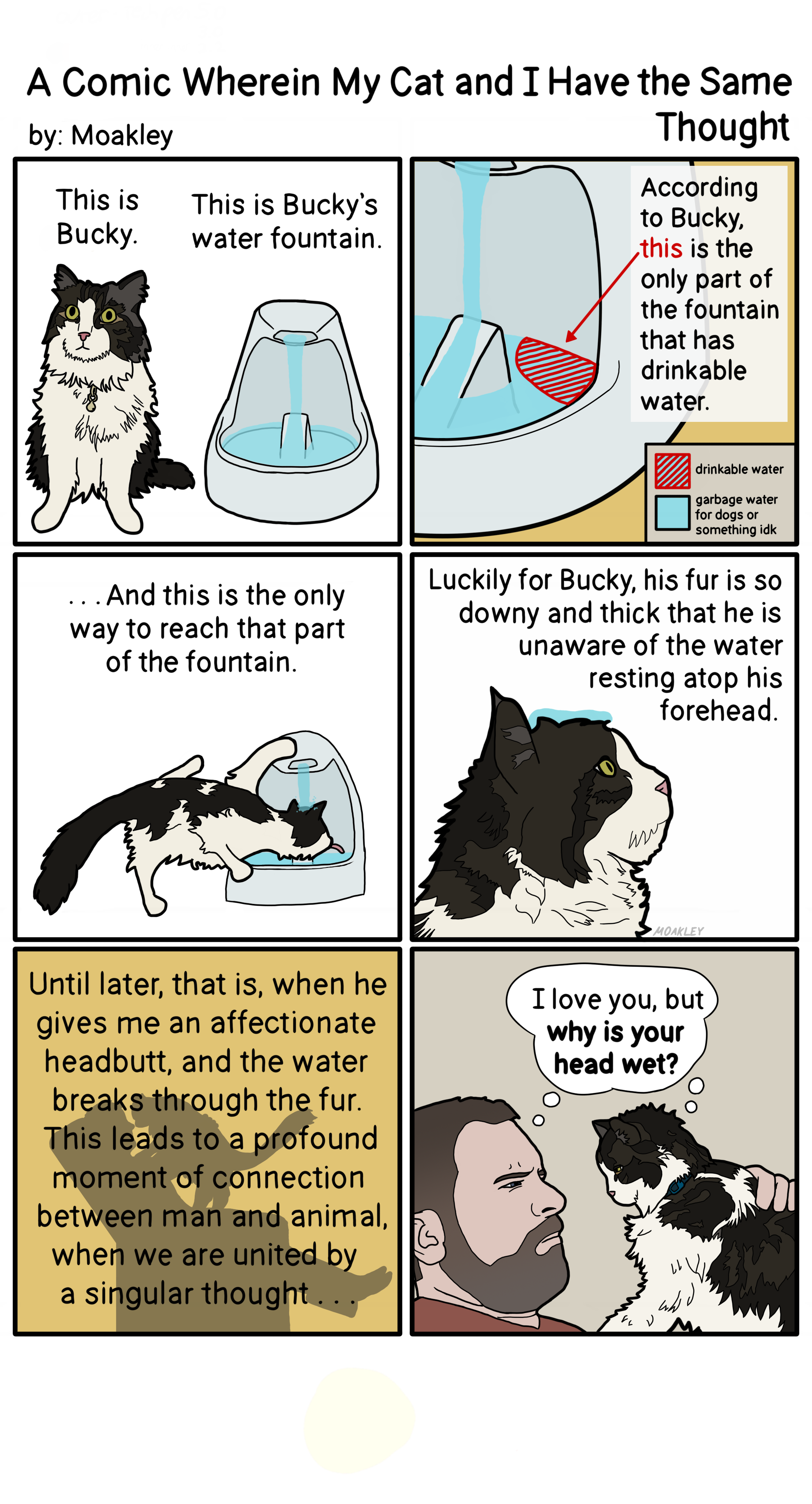
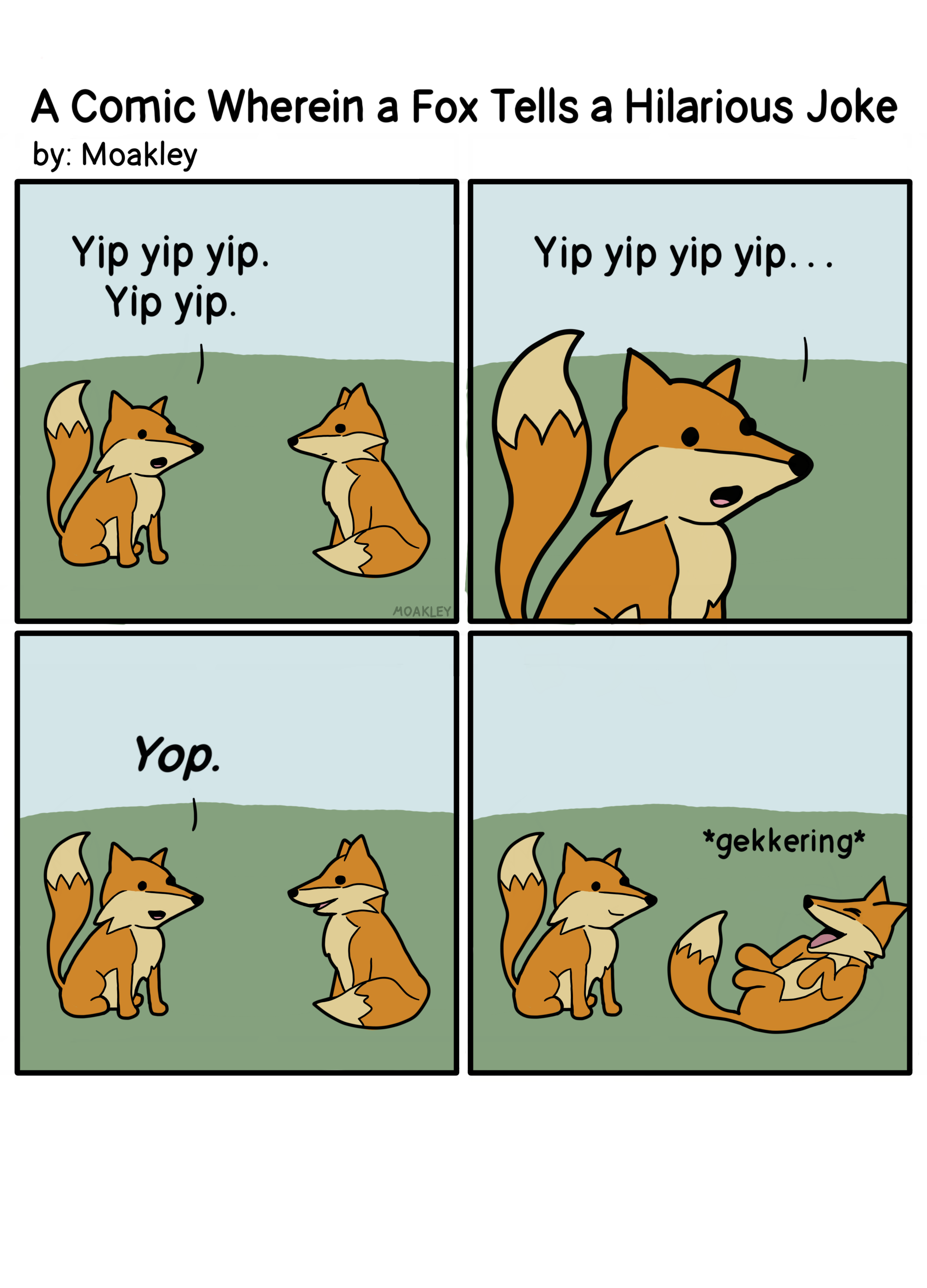
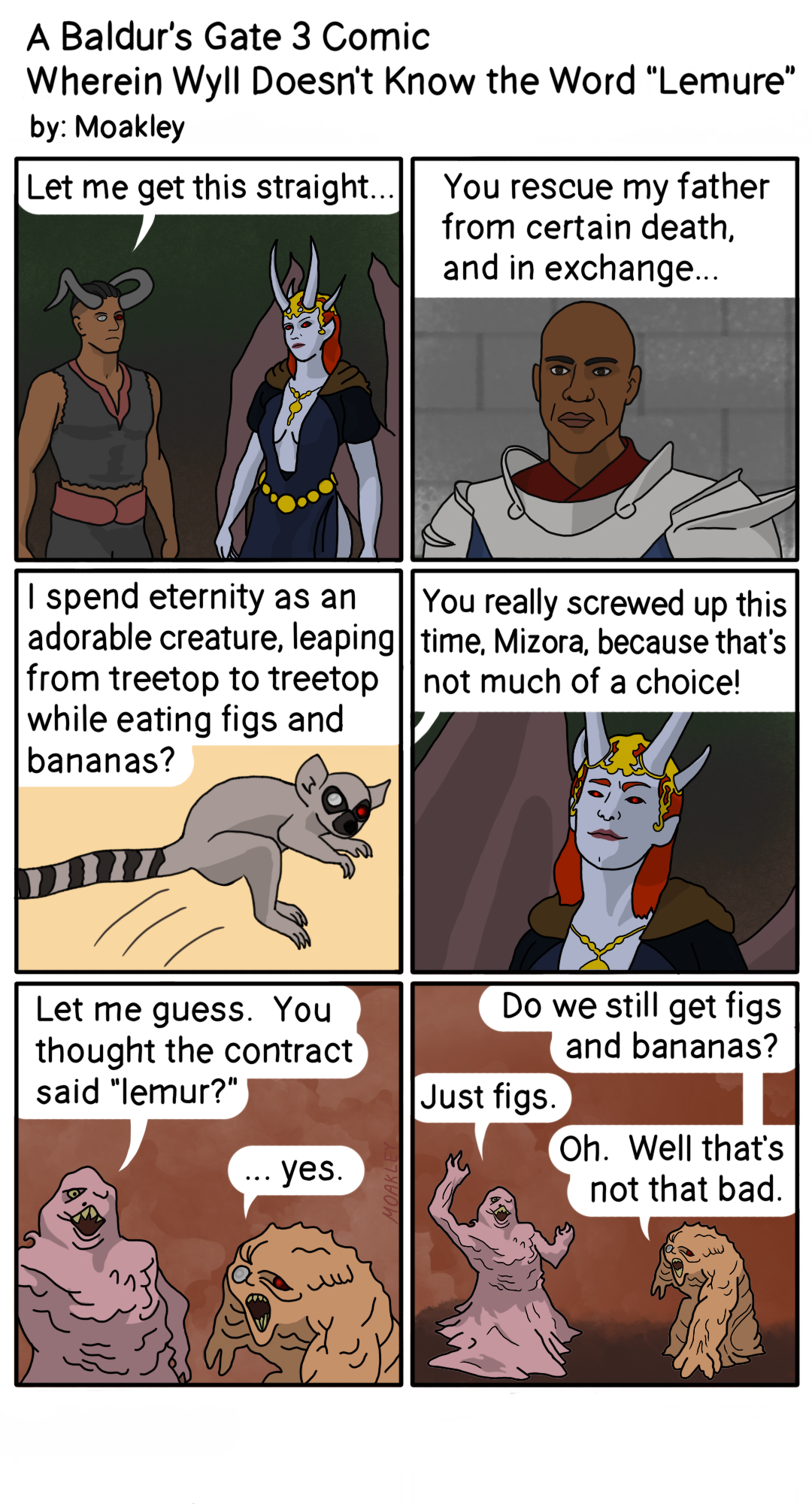
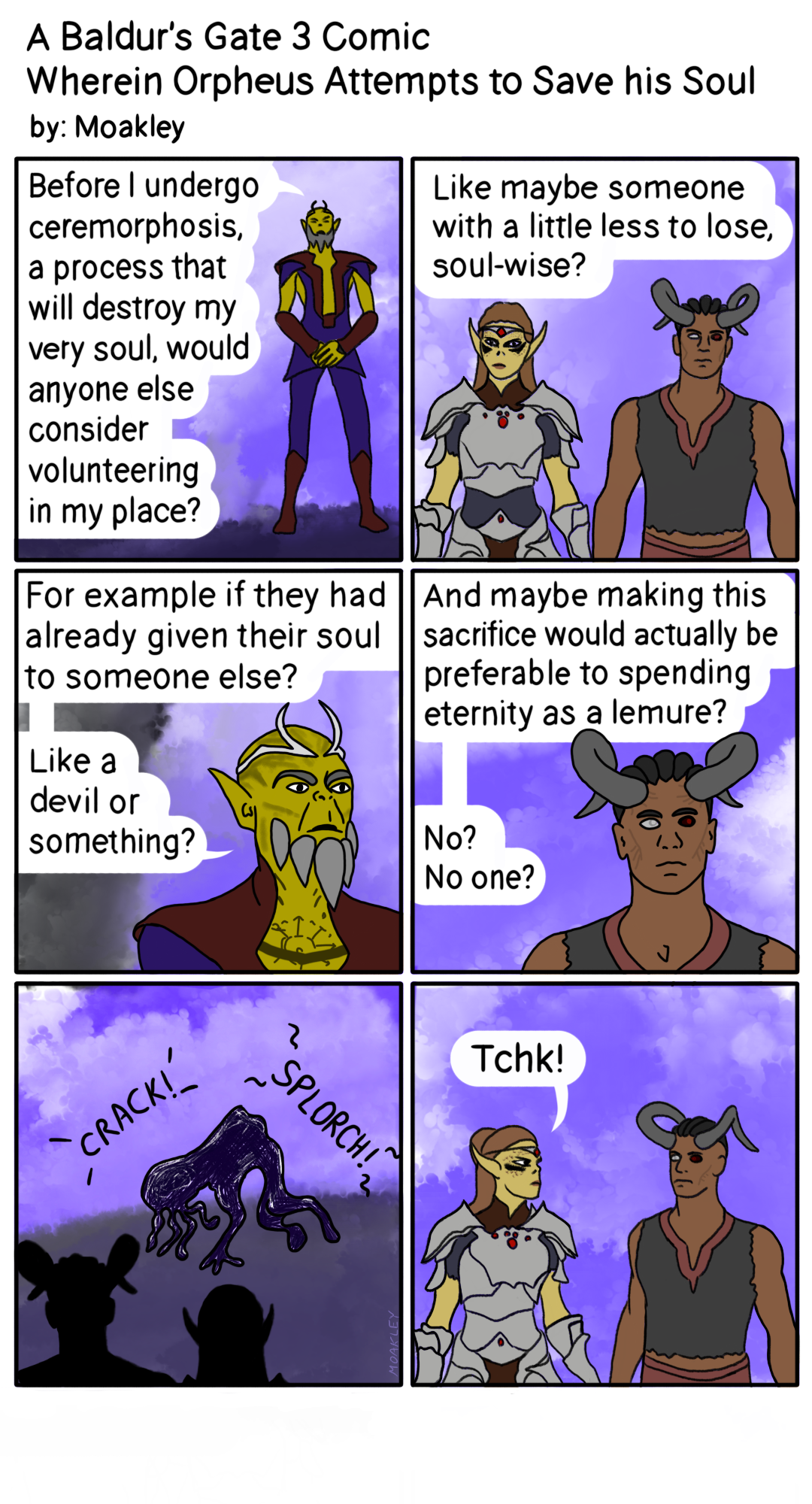
To be fair, the phrase "survival of the fittest" was coined by Herbert Spencer, who definitely did use it to describe dying from poverty.
His actual opinion was a little more nuanced than that, but Social Darwinism was kind of his whole thing, and that's where the phrase "survival of the fittest" comes from. Darwin himself took it from Spencer and added it to later editions of On the Origin of Species.